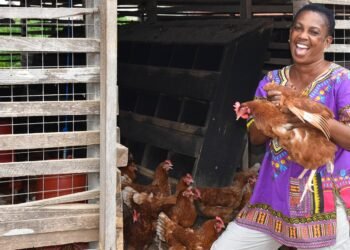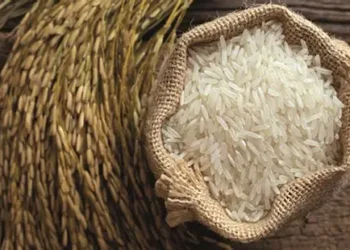Ghana is gearing up to launch an ambitious Palm Industry Policy aimed at transforming the country into a formidable player in the global palm oil market.
The announcement was made by the Minister for Finance, Dr. Cassiel Ato Forson, during a meeting with representatives of British International Investment (BII).
The policy, he noted, would elevate palm to the status of a strategic crop, much like cocoa, to anchor Ghana’s agribusiness agenda.
Dr. Forson emphasized that the government’s goal is to attract significant private sector investment into palm cultivation.
“We are looking to attract private sector investment to cultivate 50,000 hectares of palm. For the first 20,000 hectares alone, we estimate a need for $100 million in investment”.
Dr Cassiel Ato Forson, Ghana’s Finance Minister
This bold initiative is rooted in the understanding that palm oil remains one of the most versatile and highly demanded commodities globally, with uses ranging from food and beverages to biofuels, cosmetics, and personal care products.

In fact, over half of all packaged products consumed worldwide—ranging from lipsticks and soaps to ice cream—contain palm oil.
In 2023, the global palm oil industry was valued at more than $70 billion and is expected to grow by about 5% annually until 2030.
Ghana’s aspiration to enter this competitive industry is not without precedent. Dr. Forson pointed out that countries such as Malaysia have successfully leveraged palm cultivation to fuel national development, and Ghana is now determined to follow a similar path.
However, the challenge Ghana faces is stark. The country consumes approximately 250,000 metric tonnes of palm oil each year but produces only 50,000 metric tonnes domestically—just 20% of its national demand.
The remaining 80%, about 200,000 metric tonnes, is imported at a cost of $200 million annually.
This heavy reliance on imports is not only a drain on foreign exchange but also a missed economic opportunity, especially given that Ghana has the potential to produce up to one million metric tonnes of palm oil in the medium term.
By contrast, neighbouring Côte d’Ivoire produces 600,000 metric tonnes annually—double its national consumption—and exports the surplus.
This underscores the urgency for Ghana to revamp its palm oil industry, boost local production, and reduce dependency on imports.
Making Ghana a Net Exporter of Palm Oil
The new Palm Industry Policy, according to the Finance Minister, is designed not just to close the domestic production-consumption gap but to position Ghana as a net exporter in the medium to long term.
The plan includes developing land banks to establish commercial palm plantations and encouraging farmers to engage in out-grower schemes.

Existing plantations such as Benso Oil Palm Plantation (BOPP), Twifo Oil Palm Plantation (TOPP), and Ghana Oil Palm Development Company (GOPDC), along with out-grower programs, are expected to be key pillars in the expansion drive.
Furthermore, the Ministry of Finance is set to establish a Real Sector Division to spearhead the identification of high-impact sectors for investment, including agribusiness, etc.
This structural move signals a shift in Ghana’s development focus toward sectors that generate sustainable jobs and export revenue.
The meeting with BII—a major development finance institution with over $200 million already invested in Ghana, particularly in energy—was a strategic one.
BII expressed strong interest in Ghana’s renewed focus on the real sector and hinted at the possibility of expanding their support to small and medium enterprises (SMEs), forestry, and banking.
In a symbolic show of commitment, the institution is considering bringing its full board to Ghana for the first time in nearly a decade.
The planned palm oil expansion aligns with the ruling National Democratic Congress (NDC)’s manifesto pledge to develop a comprehensive national palm oil industry policy.

The NDC promised to offer incentives to promote palm cultivation, support out-grower schemes, and drive investment, research, and development across the palm oil value chain.
While the policy remains under wraps for now, its anticipated launch reflects a broader consensus that palm oil can serve as a transformative commodity for Ghana’s economy.
If implemented effectively, it could generate thousands of jobs, reduce the country’s import bill, diversify exports, and improve rural livelihoods.
Indeed, it is sobering that a country with vast fertile land and a history of agricultural prowess has failed to meet even its own domestic palm oil needs.
But with this renewed policy direction, Ghana may finally be ready to rewrite its palm oil story—not just as a consumer, but as a competitive global producer.
READ ALSO: Barker-Vormawor Bemoans Neglect of Civic Movements in Ghana’s Political Milestones























